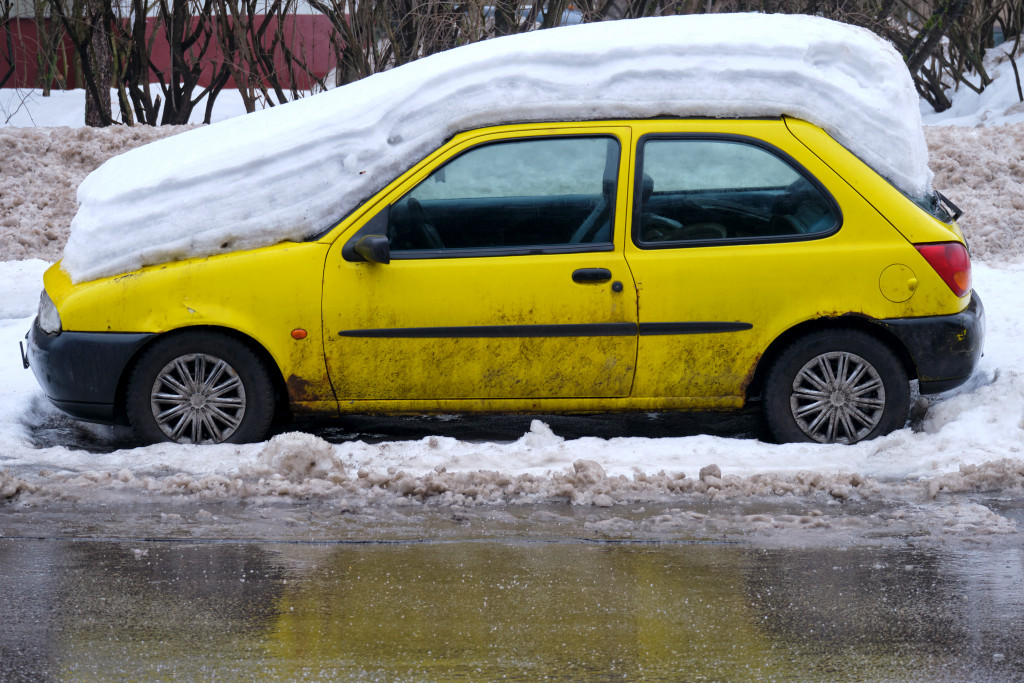Winter storms can bring snow, ice, and freezing temperatures. While this can be a fun time for the family, it can also come with many problems. From power outages to icy roads, winter storms have the potential to cause significant disruption to families, and it’s also very costly to the economy, too, costing about $4 billion per event. Therefore, it’s essential to know what kind of issues these weather events can cause so you can take steps to protect yourself and your family. Let’s look at four of the most common problems winter storms can bring to families.
Power Outages
Winter storms can potentially leave households without power due to fallen trees or damaged infrastructure caused by high winds or heavy snowfall. Power outages are especially dangerous in winter because they can lead to cold temperatures inside your home and put families at risk for hypothermia.
To prepare for this eventuality, make sure you have a backup generator on hand that is capable of powering essential appliances such as your refrigerator and heating system. Additionally, you should always keep an emergency supply kit with flashlights, candles, warm clothing, and blankets in case of an outage.
Frozen Pipes
Cold temperatures can cause pipes in your home to freeze up and burst, leading to extensive water damage. To prevent this, ensure all exposed pipes are insulated before cold weather arrives. Keep your thermostat above 55 degrees Fahrenheit so your home stays warm even during freezing weather. You can also choose to insulate the inside of your home. You have various options for this. First, you can choose to utilize robust insulated roofing systems. These systems use thick insulation and other thermal barriers to keep your home warm even during extreme cold. You can also use pressurized insulating technology, an alternative technique for keeping the inside of your home cool in summer and warm in winter. Finally, you can also choose to insulate your home using any of these materials:
- Cellulose: If you want an affordable way to keep your home warm in winter, this option is one of the most affordable. It can also provide impressive sound-blocking capabilities and is fire-resistant.
- Fiberglass: This material has excellent insulating properties and is reasonably priced.
- Polyurethane Foam: This is the insulation for you if you want durable insulation that works well even in extreme cold and heat.
Using any or all of these options can help keep your home warm, preventing your pipes from freezing. Additionally, open cabinet doors near exposed pipes so warmer air can circulate them more efficiently and keep them from freezing.

Icy Roads
Snow and ice on roads make driving conditions extremely hazardous during winter storms. Icy roads increase stopping distances and reduce traction between tires and pavement, making cars more likely to skid or slide off course into traffic or off the road completely.
Make sure that all family members are aware of the dangers posed by icy roads and take extra precautions when driving in these conditions, such as slowing down, avoiding sharp turns, and leaving plenty of space between cars ahead of them. Also, always carry tire chains or sandbags if you need extra traction while driving on slippery surfaces.
Injury Risk
When temperatures drop below freezing, it becomes much easier for people to slip or fall due to slick surfaces caused by ice or snow buildup. This increased risk of injury is hazardous for elderly family members who may not have enough strength in their legs or arms to break their fall if they slip on an icy sidewalk or driveway. Ensure all family members are aware of this risk. Additionally, prepare these three things when going out during winter:
Winter Clothes
One of the essential items to always have with you during the winter is warm gloves, hats, and layers of clothing. These can help prevent frostbite or hypothermia if you fall and need to wait for help.
Scraper & Shovel
In addition to warm clothes, make sure your family has access to a scraper and shovel in case they need to clear a patch of ice or snow off the road to call for help.
Emergency Contact Info
Keep a card with emergency contact information in your car, purse, or wallet. This can help first responders easily locate family members and ensure they get the assistance they need if they are injured while out during winter.
Overall, winter storms present many challenges for families as they may cause in daily life routines. However, by doing the tips above, you can help to minimize the potential risks posed by these weather events. This can help you and your family to stay safe and well during winter storms.

